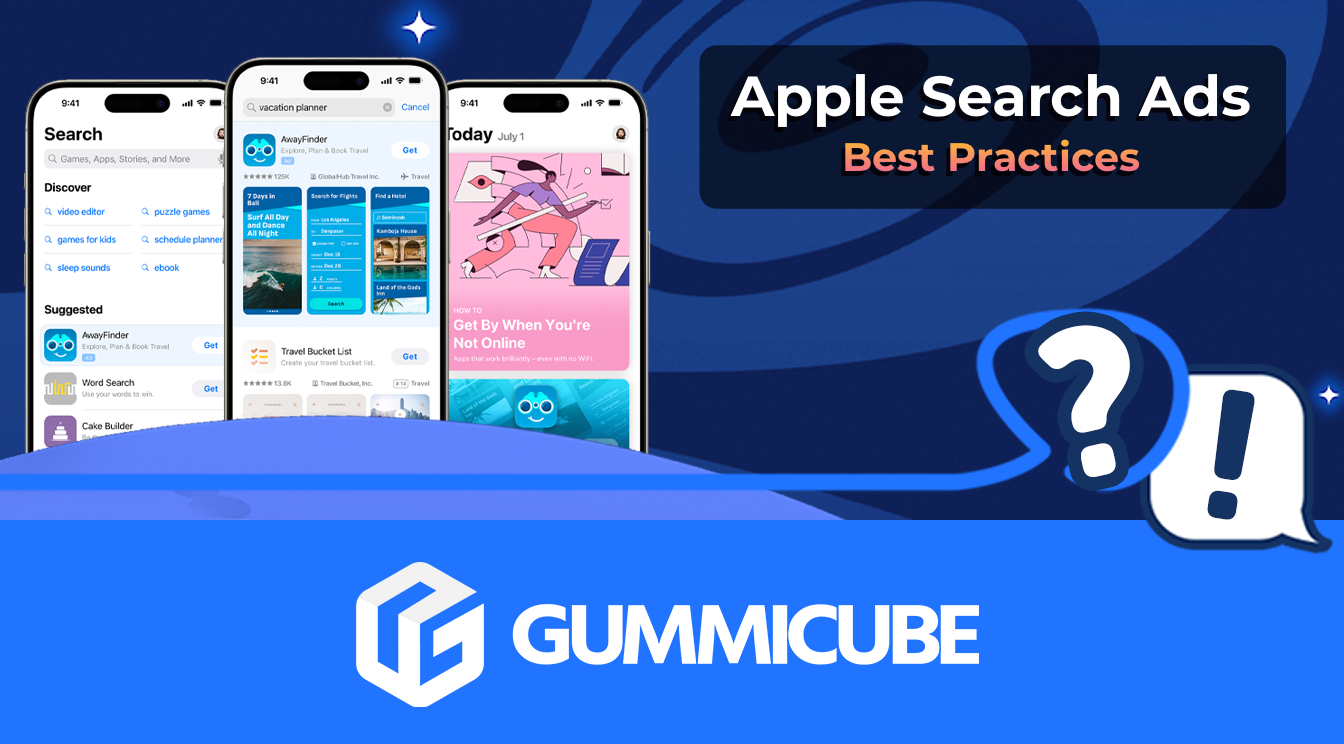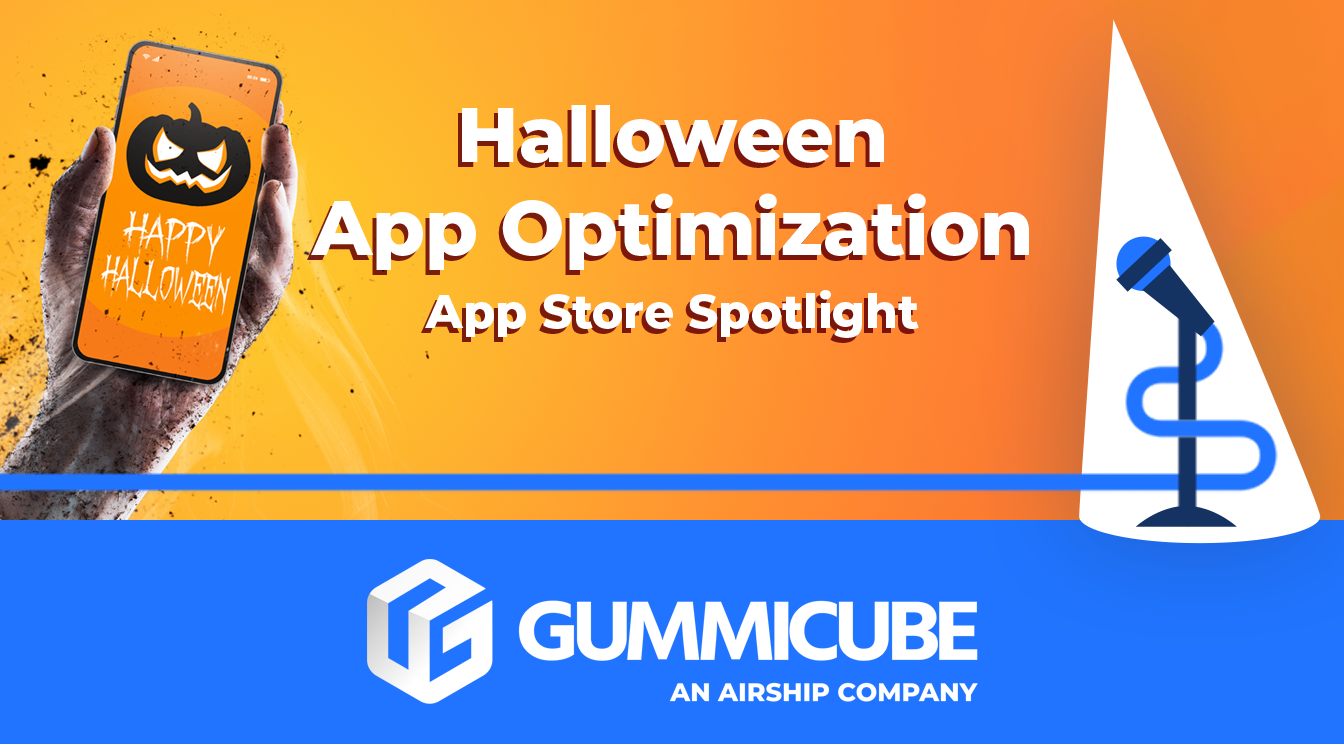
5 Best Practices for Apple Search Ads
Posted on July 3rd, 2024
Are you leveraging Apple Search Ads the right way? Take a look at these recommendations to optimize your paid campaigns and target the right users.

Choosing the right keywords can make a big difference in your app’s success. They’ll help determine what users will see your app and how many searches it will appear in, so choosing what keywords you’ll want is a major part of App Store Optimization. The App Store keyword search volume is one of the most important things to consider when choosing your keywords, so here are some things you’ll want to know when deciding.
The first point is simple but essential: the higher the App Store keyword search volume, the more users are searching for it. Therefore, the terms with the higher volume are often worth more than those with less volume and should be prioritized accordingly.
Sometimes, minor differences between keywords can have a larger disparity between search volume. For instance, “Online shopping” and “web shopping” may seem synonymous, but the latter has virtually no search volume. As such, developers of such an app may want to include “online shopping” in their metadata to capitalize on the high volume.
While it is important to identify the high-volume keywords you’ll want to target, there are also some keywords that are so commonly used that the competition for them is too fierce for a new app to target. Trying to target “video game,” for example, would essentially mean competing with every other mobile game on the App Store. In these cases, it’s best to be more specific – the video game app could target its genre or style, such as “puzzle game” or “arcade game,” both of which are still very high-volume.
While targeting high-volume keywords can help an app appear in the most common searches, there is still value to be found in keywords with lower volume but a direct relation to the app. These keywords will reach a more niche audience, but the users are more likely to be searching for an app exactly like yours.
These keywords will also often have less competition. Targeting them will enable an app to take a higher-ranking spot in search results relative to a keyword with greater competition.
By claiming high spots in search results for terms with less competition, an app can increase its overall growth. Through increases in download velocity and indexation, the app may start to rank higher in searches for the more competitive terms as well.
When determining App Store keyword search volume, it’s important that the data you use comes directly from the App Store. Users search differently on mobile devices than they do on web search engines, so the search volume for keywords will be different on mobile than on the web. In fact, there’s only a 20% overlap between web and mobile search trends, so there will be major disparities in the search volume for most keywords.
Web searches tend to be transactional, navigational or information queries, such as buying tickets or finding out who wrote the song that’s been stuck in their head. These can be longer search terms, such as “who wrote the Declaration of Independence?” or specific requests like “program to copy music.”
On the other hand, mobile searches are typically 2 to 3-word phrases about a feature or brand name. Users might search for functions like “watch TV” or specific apps like “Facebook.” Given the differences in these search styles, using web search data to determine keyword volume will give inaccurate results.
The key to finding the App Store keyword search volume lies in App Store Optimization software. ASO software can determine the search volume of individual keywords and phrases including those keywords, so developers can identify what relevant terms are popular.
Using ASO software, a developer can find the difference in search volume between a word and its synonyms, such as if “hair salon” or “barbershop” is a better keyword to target or if “runner” has higher volume than the plural “runners.” These distinctions can make a difference for an app’s optimization strategy, so being able to identify and understand the distinctions can help an app succeed.
One of the most important things for determining keywords is relevance. The keywords must be related to the app and its features, otherwise it will not rank well for them. If an app shows up in searches for irrelevant keywords, like a shoe shopping app showing up in searches for a running game, they will skip over it and the app will not increase its clickthrough rate. Using irrelevant keywords will result in wasted space in the metadata fields that could otherwise be used to target more valuable terms. Fortunately, ASO software can help identify what relevant keywords have the best volume.
With ASO software, a developer can find relevant App Store keywords with the search volume they need. Finding keywords with high search volume or lower volume but high relevancy can help an app succeed in the App Store.
Want more information regarding App Store Optimization? Contact Gummicube and we’ll help get your strategy started.

Are you leveraging Apple Search Ads the right way? Take a look at these recommendations to optimize your paid campaigns and target the right users.

Ghostly happenings are among us... and in your app listing too? If you aren't leveraging the power of app seasonality to make relevant tweaks to your store listing you're leaving precious engagement and conversions on the table.

Developers on the iOS App Store should plan in advance of the upcoming Holiday Schedule to allow enough time for apps to get approved during the busy holidays.